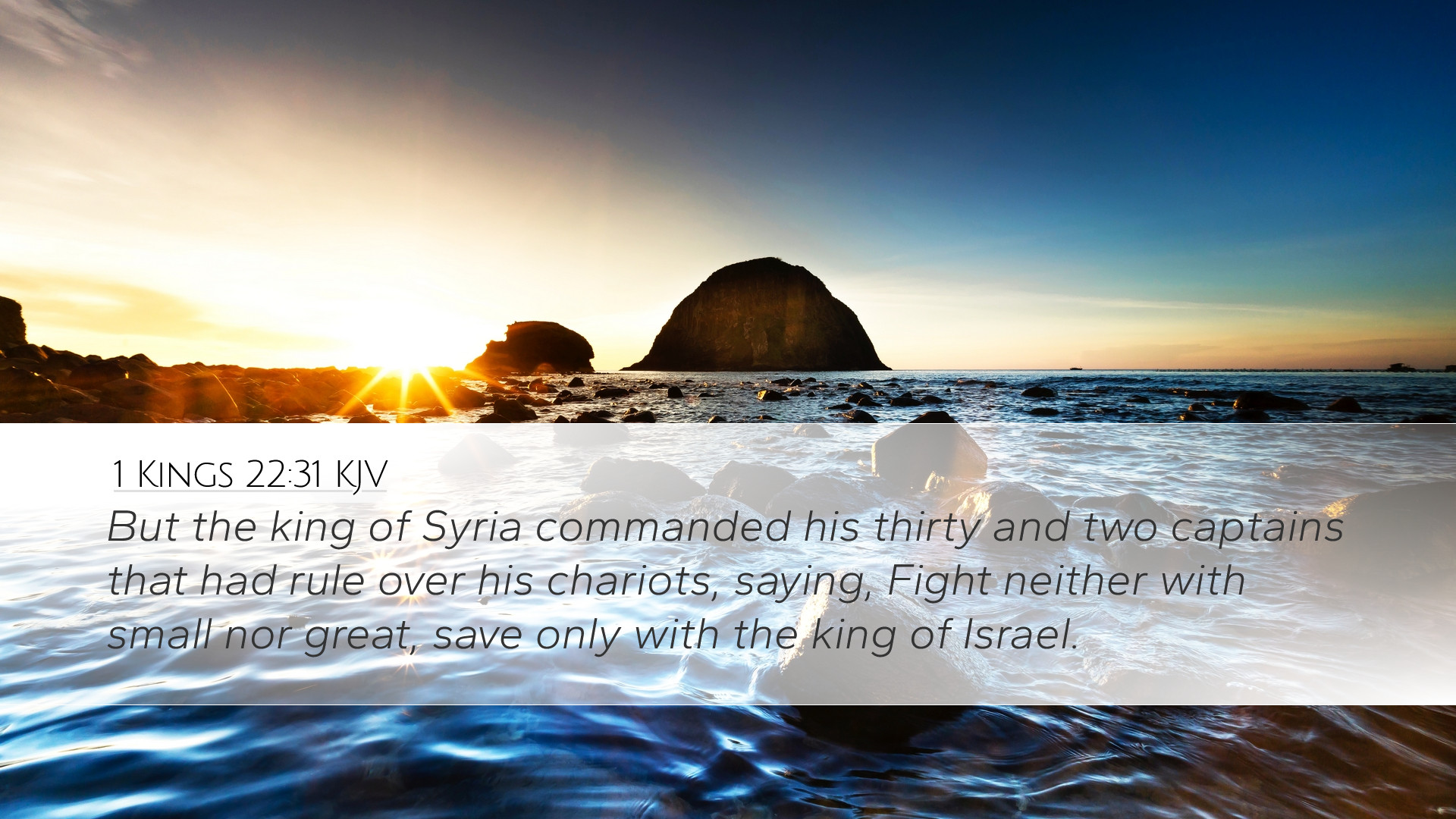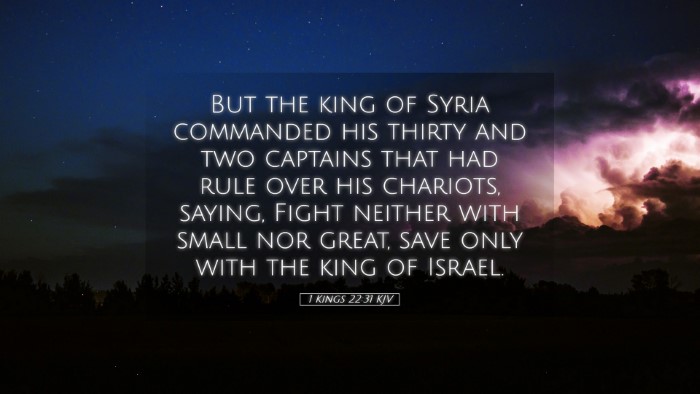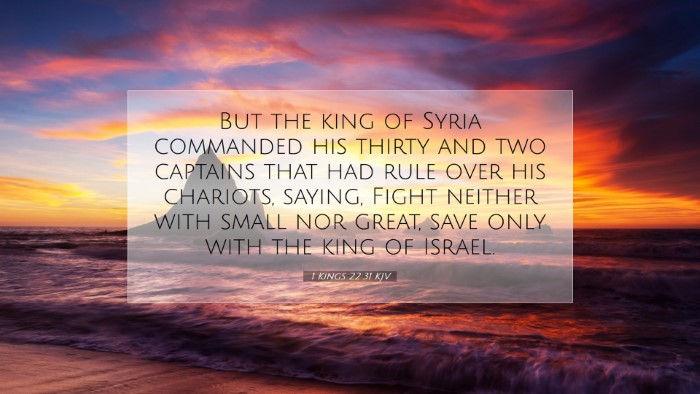Commentary on 1 Kings 22:31
Verse Reference: 1 Kings 22:31 - "But the king of Syria commanded his thirty-two captains, saying, 'Fight with no one small or great, but only with the king of Israel.'
Contextual Overview
The narrative of 1 Kings 22 offers a critical glimpse into the political dynamics of ancient Israel and the surrounding nations. Ahab, the king of Israel, seeks to form an alliance with Jehoshaphat, the king of Judah, to reclaim Ramoth-gilead. Prior to this military venture, Ahab consults with prophets, yet the counsel he receives is mixed. The underlying tensions, prophetic warnings, and the impending clash with Syria all converge in this climactic moment.
The King's Command
The phrase "only with the king of Israel" reflects a directed intent within the conflict. This specificity signifies both military strategy and the perceived significance of Ahab’s position in the conflict.
Insights from Matthew Henry
Henry emphasizes the moral implications of Ahab's leadership and the consequences of his idolatry. The directives given by the king of Syria illustrate the simplicity and danger of focusing solely on one opponent. It is a tactic that aims to limit the battlefield to a singular confrontation, showcasing the ambition and desperation of Ahab’s enemies.
Albert Barnes’ Perspective
Barnes discusses the tactical advantages that the Syrian king seeks by focusing on Ahab. He highlights how Ahab's covenant with Jehoshaphat amplifies his vulnerability. The focus on Ahab rather than a broader military approach reveals a calculated move to destabilize Israel's leadership and morale. Additionally, Barnes notes the prophetic declaration that accompanies this battle, hinting at divine oversight over the unfolding events.
Adam Clarke’s Analysis
Clarke provides a theological perspective on the passage, suggesting that the command to focus solely on Ahab reveals a deeper spiritual battle at play. He argues that this strategy is not merely military but emblematic of God’s will against Ahab, who despite professional counsel, still aligns himself with false prophets. Clarke emphasizes the idea of divine punishment being enacted through the agency of foreign kings, illustrating the sovereignty of God in judgment.
Theological Implications
The directive from the king of Syria serves as a lens to examine the implications of leadership and its accountability before God. The focus on Ahab reveals the weight of responsibility that leaders must bear, particularly those who lead God's people. It raises questions regarding the nature of divine justice and the lengths to which God will go to bring about His purposes.
Lessons for Leaders
- Responsibility of Leadership: Leaders are tasked not only with the oversight of their flock but also with the spiritual integrity of their decisions.
- The Danger of Alliances: Ahab's alliance leads to spiritual compromises, a warning for contemporary leaders regarding partnership and influence.
- God's Sovereignty: The events remind readers that God remains in control, even using external circumstances for His divine plans.
Practical Applications
For pastors and students, this passage serves as a reminder to maintain vigilance in prayer and discernment. The reliance on false like-mindedness can lead to devastating ends, both for individuals and congregations. Understanding the implications of Ahab’s decisions encourages a heart of humility when faced with counsel from others.
Reflective Questions
- What can be learned about the nature of godly leadership from Ahab’s example?
- How do the prophetic warnings apply to our modern context?
- In what ways can we ensure that our alliances are spiritually aligned?
Conclusion
As we reflect on 1 Kings 22:31, the focused aggression of the Syrian king against Ahab evokes a multifaceted discussion on leadership, prophecy, and divine oversight. The insights from Henry, Barnes, and Clarke converge to depict Ahab not merely as a historical figure but as a cautionary tale of negligence in moral stewardship, emphasizing the sovereign nature of God's plans amidst human actions.


